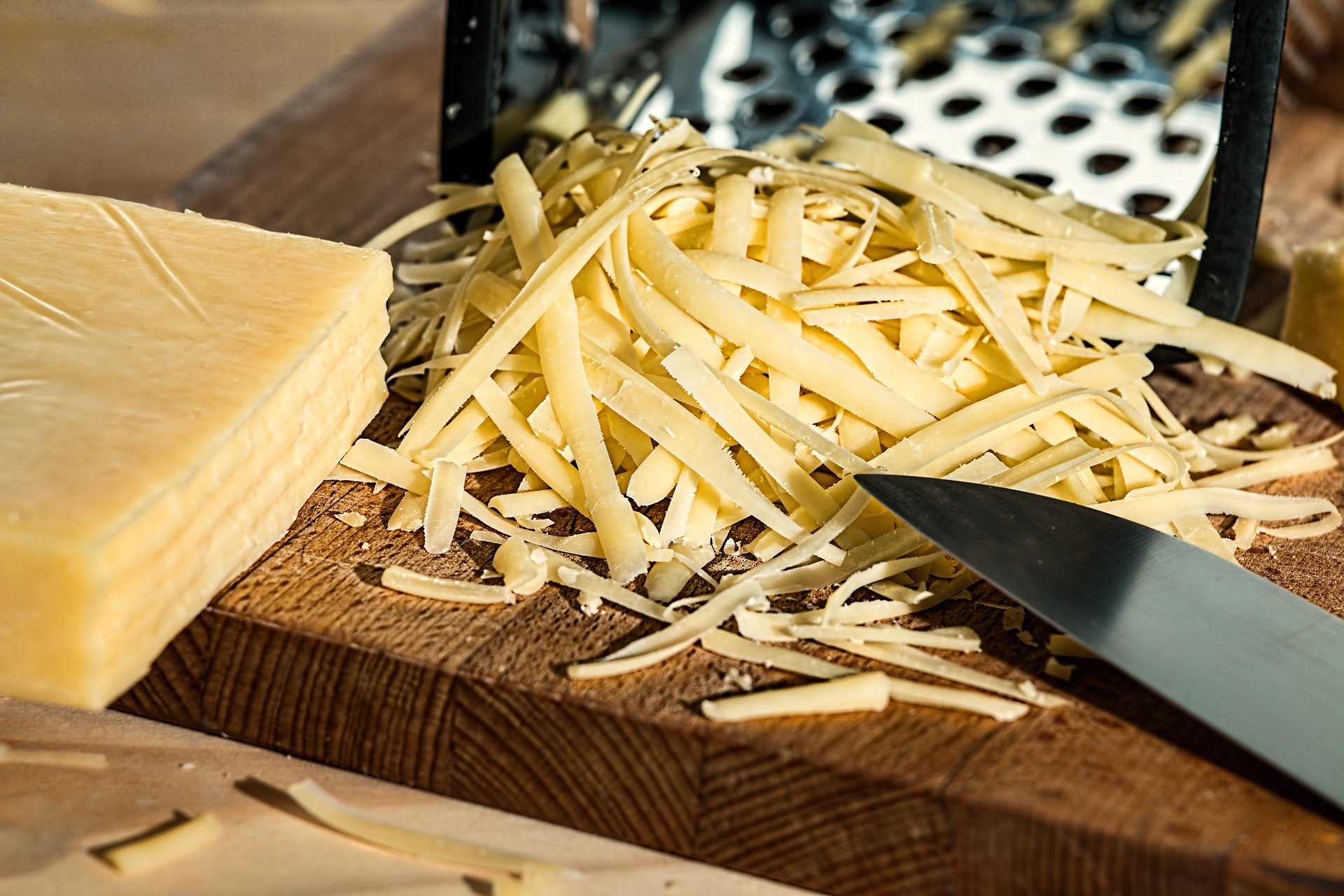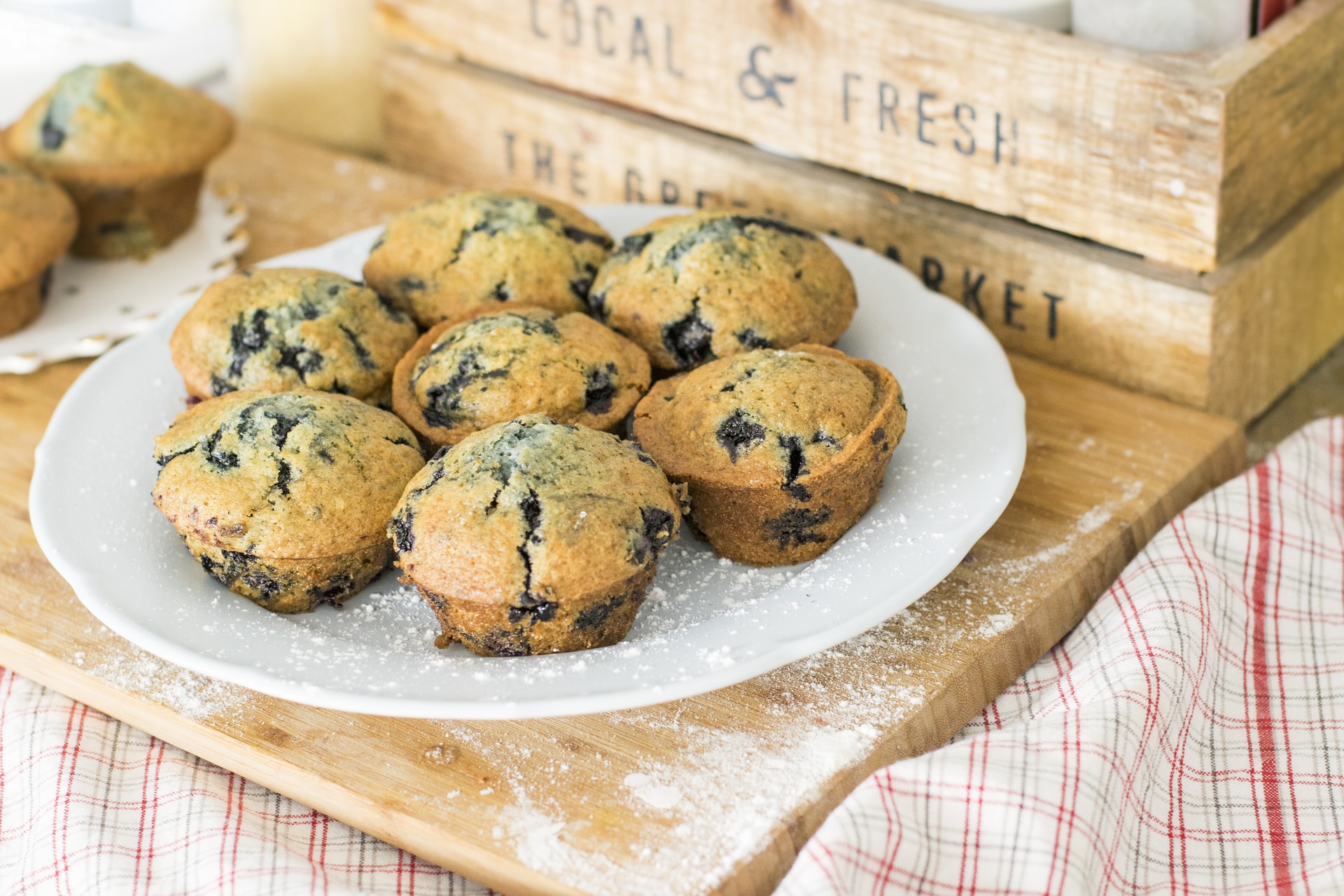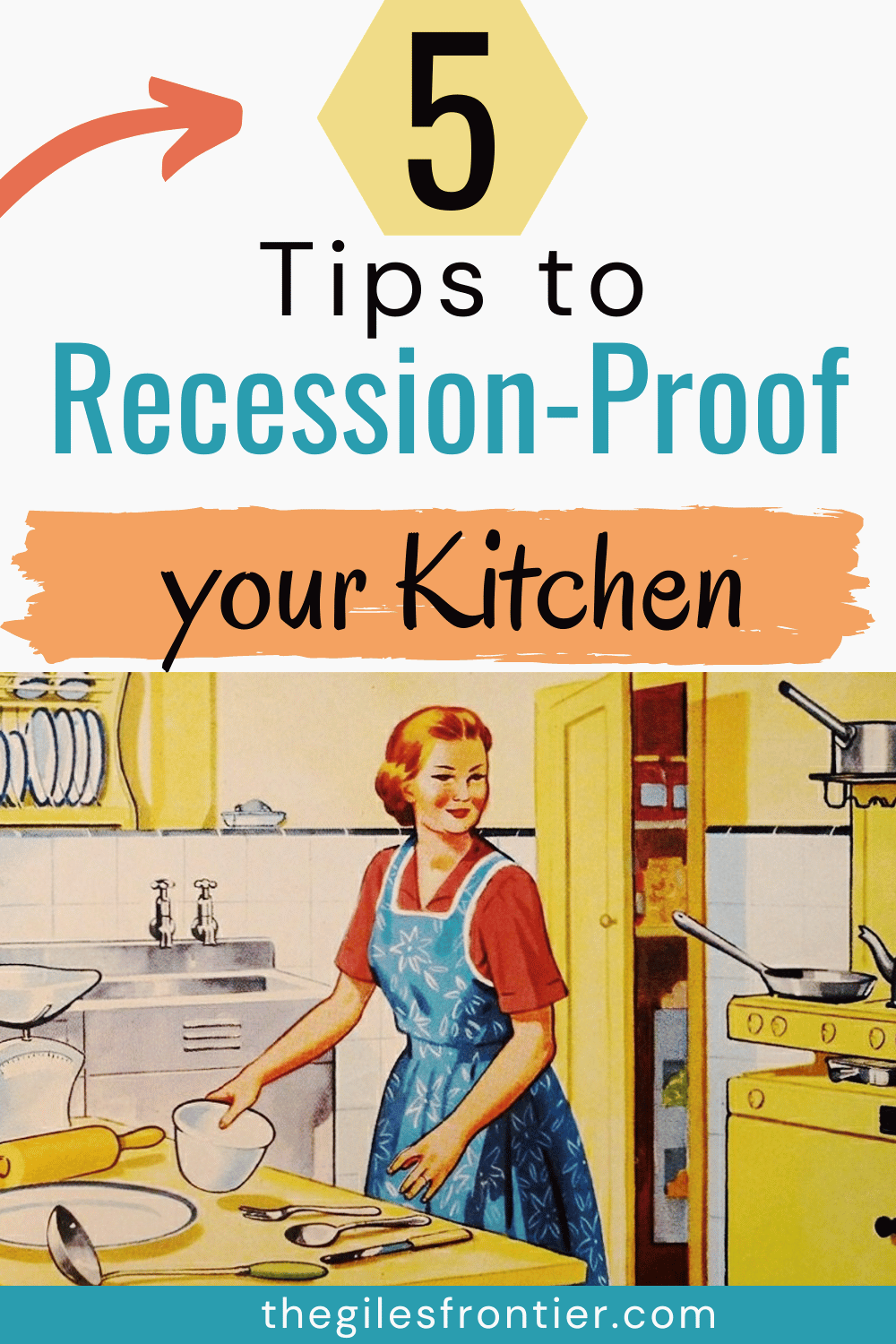
As an Amazon Associate, I may earn commissions from qualifying purchases from Amazon.com
5 Tips to Recession-Proof Your Kitchen
Stretching your grocery dollar is getting harder to do these days. Especially when you have children to feed. I have teenage boys, and they can really eat. Years ago, I learned to do a few things to help in times of need. My grocery budget can fluctuate, but I still need to be able to put nutritious food on the table every day. Finding ways to recession-proof your kitchen can help.
Use these 5 tips to help you find a balance and not get overwhelmed when the food consumption outweighs your grocery budget. Choose one tip at a time that is doable for you. Work toward another tip that sounds feasible for your household. In time, you can ride out the inflated prices and know you can find alternatives.

What foods do well in a recession?
Less is more may seem counter-intuitive when trying to store more food. However, when the budget is tight, substitutions are in order. Meat is one grocery item that can fluctuate and be out of your budget. Ground beef can be used in many different ways so this is the choice for bulk buying. Ground chicken and turkey can be used as well.
Buy when it is on sale and then pre-make packages for the freezer. Freeze right from the package or pre-cook some for quick recipes. Breaking up the package into portion sizes will stretch the meat. If you throw the whole package in the freezer, you risk using too much or having waste that ends up in the garbage after a few days.
See also – Pioneer CultureIf you usually use one pound of ground meat in a recipe, cut it to a half pound and add a can of beans. Beans are full of fiber and protein and add nutritious value. Cannelloni white beans are easy to disguise in a recipe and are a perfect filler in casseroles and soups. Beans can be purchased in cans or dry. Dry is less expensive; however, keeping cans in the pantry helps with last-minute recipes.
How do I recession-proof my pantry?
Buy a small deep freezer.
Having a second freezer is key to recession-proof your kitchen. Store bulk buys and plan around seasonal fruits and vegetables. Once I began using another freezer, I could add those special buys or clearance items I did not have room for before. I keep venison and elk in one freezer. My oldest son is a hunter and keeps us stocked in meat for a year at a time. I also have a stand-up freezer for my freezer meals and extra food.
Buy extra bread when it is on sale or clearance. Cheese is cheaper in bulk. Portion it out in one or two-cup portions for the freezer. Buy larger quantities of fresh vegetables at the farmer’s market or grocery and portion them for the freezer. I purchase peaches direct from the farm in bushels. Spending a few hours here and there will supply us with a variety of foods all year long.
Streamline kitchen gadgets
I know having the latest kitchen gadget is fun and seems like it will revolutionize your cooking. But, in reality, many items will end up on a shelf collecting dust and using valuable space. Choose a few key tools that can do various things to help you in the kitchen.
A kitchen aid mixer, or similar item, is one of those multi-purpose tools that help recession-proof your kitchen. I use mine to make bread, desserts, and muffins. Also, I use the attachments to grind meat, grate cheese, and slice bulk vegetables. I don’t need many other tools that require attachments when my mixer can do it.
See my best kitchen gadgets listA slow and pressure cooker are good tools that help simplify the kitchen. My slow cooker is at work at least three days a week. On the days I work, the slow cooker will do the job, and I have dinner ready when I get home. I also have a food dehydrator to save fruit and vegetables that might end up in the garbage on trash night.

What is the cheapest food in a recession?
Batch freeze quick meals and vegetables
There are many avenues you can go down with batch cooking. Most of us don’t have a full day or two to devote to full-on meal prepping for a month. Trying to do many items at a time can be overwhelming, and daily disruptions will cause many to give up on the idea. However, you can do it one food item at a time.
When you buy a bag of onions, take fifteen minutes to chop up at least half of them into small portion bags for the freezer. When I am short on time and want to throw together a quick meal, preparing those onions helps me think quickly and not order out. Celery is a great filler in recipes; a whole bag of celery can be chopped up quickly. Bell peppers are also suitable for the freezer and hold up well.
Rotisserie chickens are one of my favorite batch-freezing foods. At Sam’s Club, I will buy two or three chickens for under $5 each. I can’t buy them and spend the energy cooking them for $5! Within the next day or so I will pull all the chicken off the bone and portion it into several bags for the freezer. Depending on my time, I will boil the bones and make chicken broth. I freeze it in zip-top bags in 2-cup quantities.

Cook foods from scratch to save money
What! How is cooking from scratch going to work for a busy family? Knowing how to cook staples from scratch is a surefire way to recession-proof your kitchen. Baking bread is one way to always have it on hand and loaves in the freezer. The ingredients you use are of much higher nutritional value than store-bought. The hands-on time is less than fifteen minutes, and I cook two loaves at a time. Make quick bread and muffins from leftover bananas, strawberries, and blueberries. They taste much better and freeze well.
See also – Weeknight Skillet BreadYou can do it
Implementing one tip from this post can make a positive change in your kitchen. You have saved money if you can prevent one meal a week that your family eats out because you don’t know what to cook. This savings can be in your food budget to add supplies that do quick work to a meal on busy days. With a bit of long-term planning, you can feel more in control of your grocery bill and not be blindsided by rising costs.
